Reports and books

Networks of (in)security: how global counter-terrorism and security norms threaten civic space and human rights
Global counter-terrorism and security norms are propelling the introduction of pre-emptive, automated and algorithmic forms of surveillance and profiling, says new research published today by Statewatch. This is reinforcing racism and discrimination, inhibiting free movement, and giving authoritarian states new tools of control. The research calls for an organised response to this long-term state project, and sets out some guiding questions for future work.

Data Protection Handbook on Asylum and Migration in Europe
The EU’s immigration and asylum system is governed by a complex set of rules. As well as being regularly amended by legislators, those rules are also subject to frequent interpretation (and re-interpretation) by the courts. The increasing use of digital technologies and databases for the enforcement of immigration and asylum law adds a further twist to this complicated scenario.

Exporting Borders: Frontex and the Expansion of Fortress Europe in West Africa
The EU is pushing its migration control far beyond Europe’s borders. This report, co-published with the Transnational Institute, exposes how Frontex operates in West Africa under the cover of cooperation, entrenching neo-colonial influence, undermining rights, and reshaping the Sahel into a securitised buffer zone.

New Technology, Old Injustice: Data-driven discrimination and profiling in police and prisons in Europe
Police and criminal legal system authorities across Europe are increasingly using data-based systems and tools to ‘predict’ where crime will occur, to profile people as criminals and to assess the ‘risk’ of crime or criminality in the future.

Automating Authority: Artificial intelligence in European police and border regimes
Artificial intelligence (AI) technologies are being embedded into everyday life by powerful actors, primarily motivated by profit. Police, border and criminal justice agencies are also looking to take advantage of the new powers AI offers for “security” policies, at both national and EU level. The EU is creating new infrastructure, away from the public eye, to allow the swift development and deployment of “security AI.” This will also reinforce the existing discrimination, violence and harm caused by policing, border and criminal justice policies. Exposing and understanding this emerging security AI complex is the first step to challenging it.
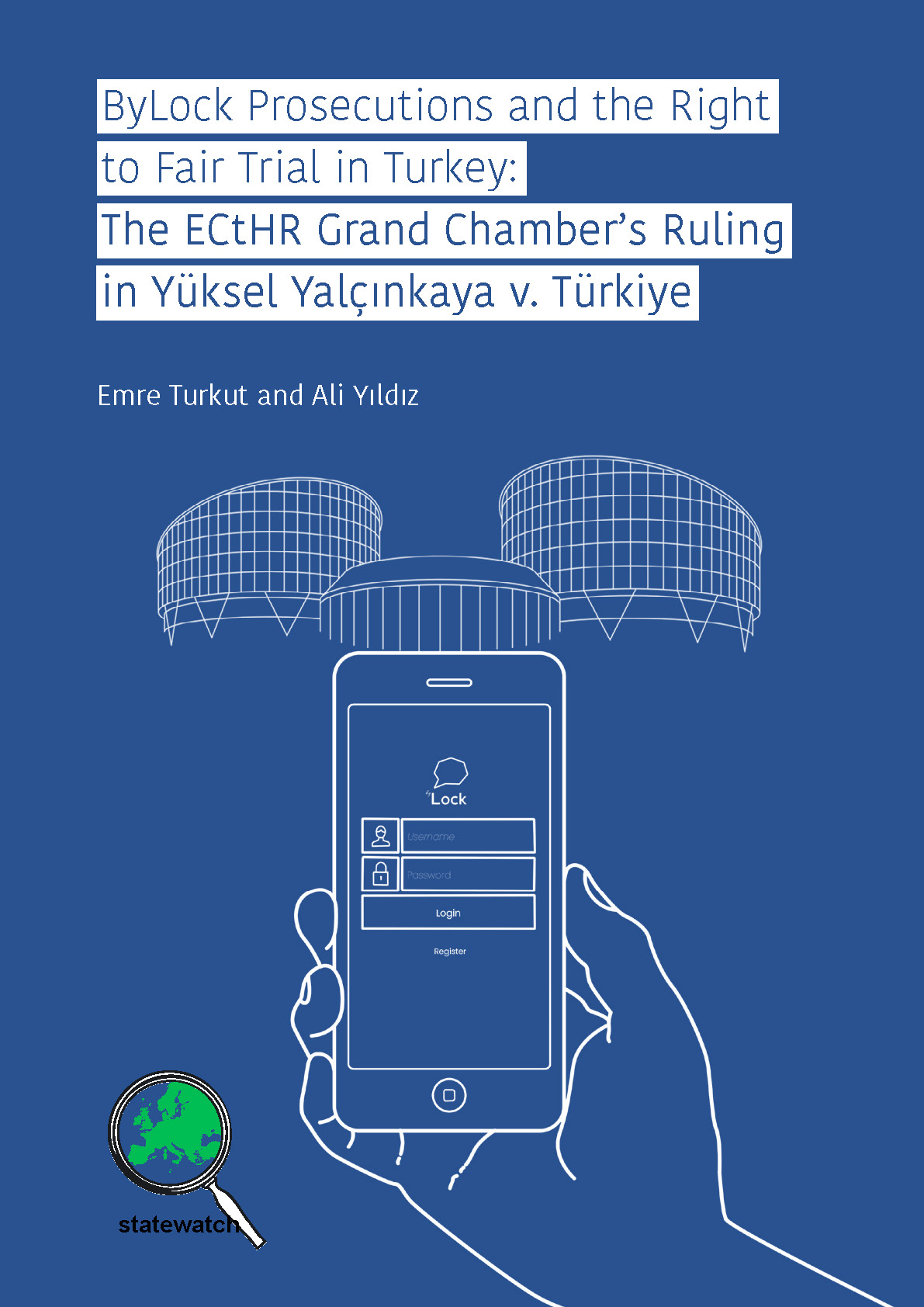
ByLock Prosecutions and the Right to Fair Trial in Turkey: The ECtHR Grand Chamber’s Ruling in Yüksel Yalçınkaya v. Türkiye
This report analyses the European Court of Human Rights' judgement in the case Yalçınkaya v Türkiye, which found that a conviction based on the use of the encrypted messaging app ByLock violated a number of rights: no punishment without law; the right to a fair trial; and freedom of assembly and association. The judgement represents a milestone in the legal and political discourse surrounding ByLock convictions, and should be used as the basis for retrials for the tens of thousands of people who have been punished for their alleged use of the app.
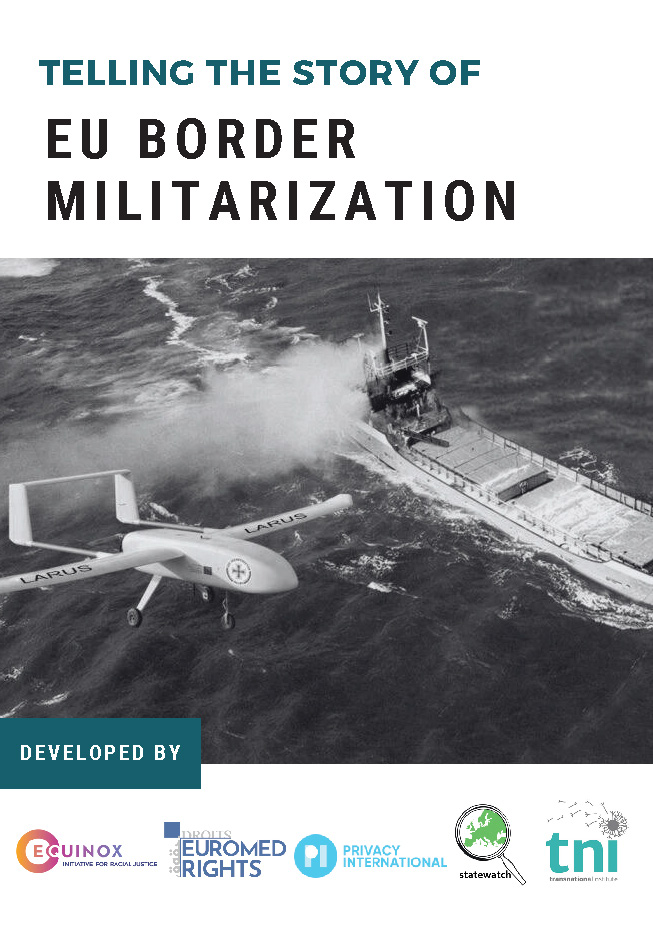
Telling the story of EU border militarization
Addressing and preventing European border violence is a huge but necessary strategic challenge. This guide offers framing messages, guiding principles, and suggested language for people and organisations working on this challenge. It emerges from a process of discussion online and in-person between over a dozen organisations working in the European migrant justice space.
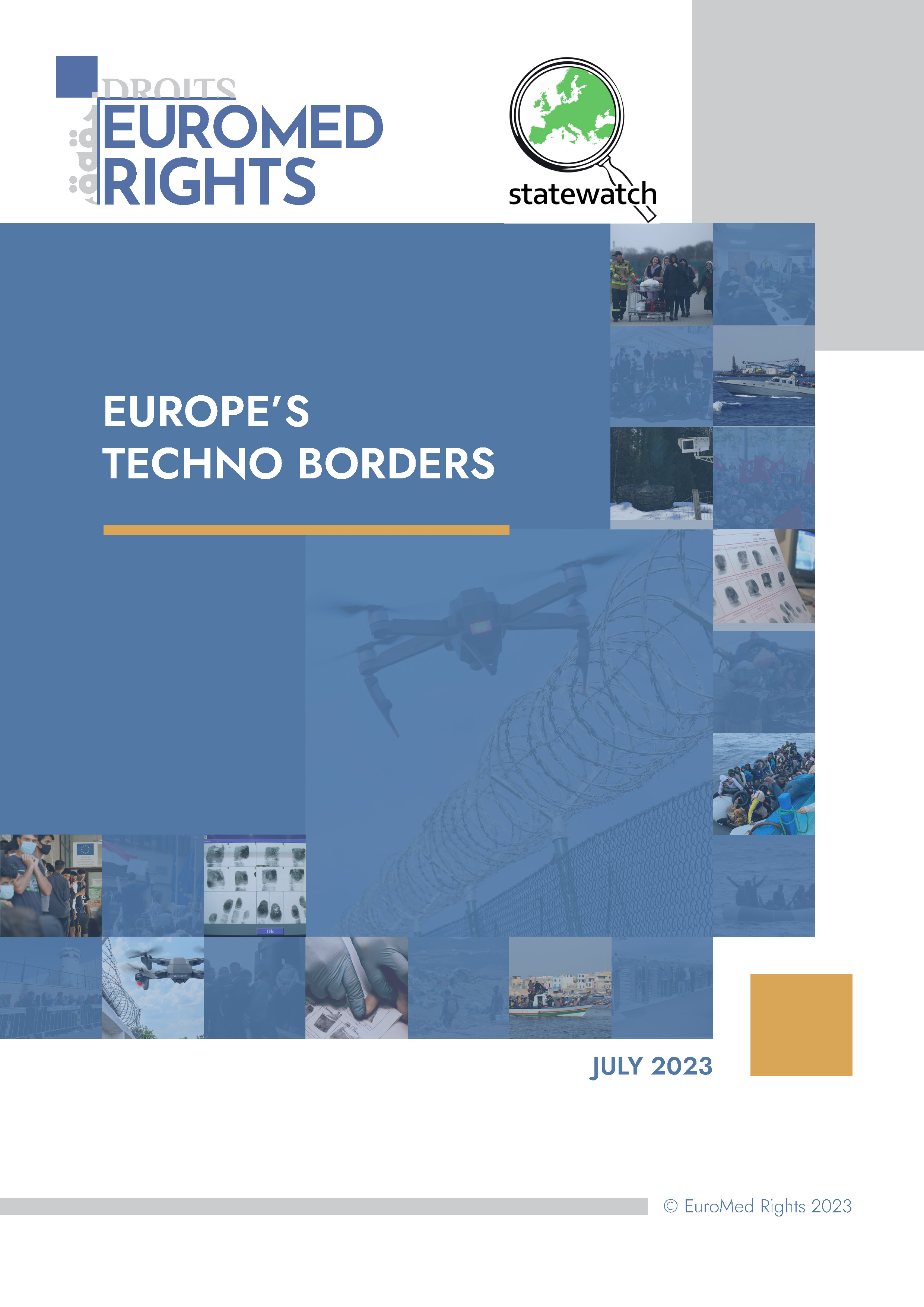
Europe's techno-borders
The digital technologies deployed as part of Europe’s techno-borders underpin invasions of privacy, brutal violations of human rights, and make the border ‘mobile’, for example through the increased use of biometric identification technologies, such as handheld fingerprint scanners. This report analyses the past, present and future of Europe’s “techno-borders,” the infrastructure put in place over the last three decades to provide authorities with knowledge of – and thus control over – foreign nationals seeking to enter or staying in EU and Schengen territory.
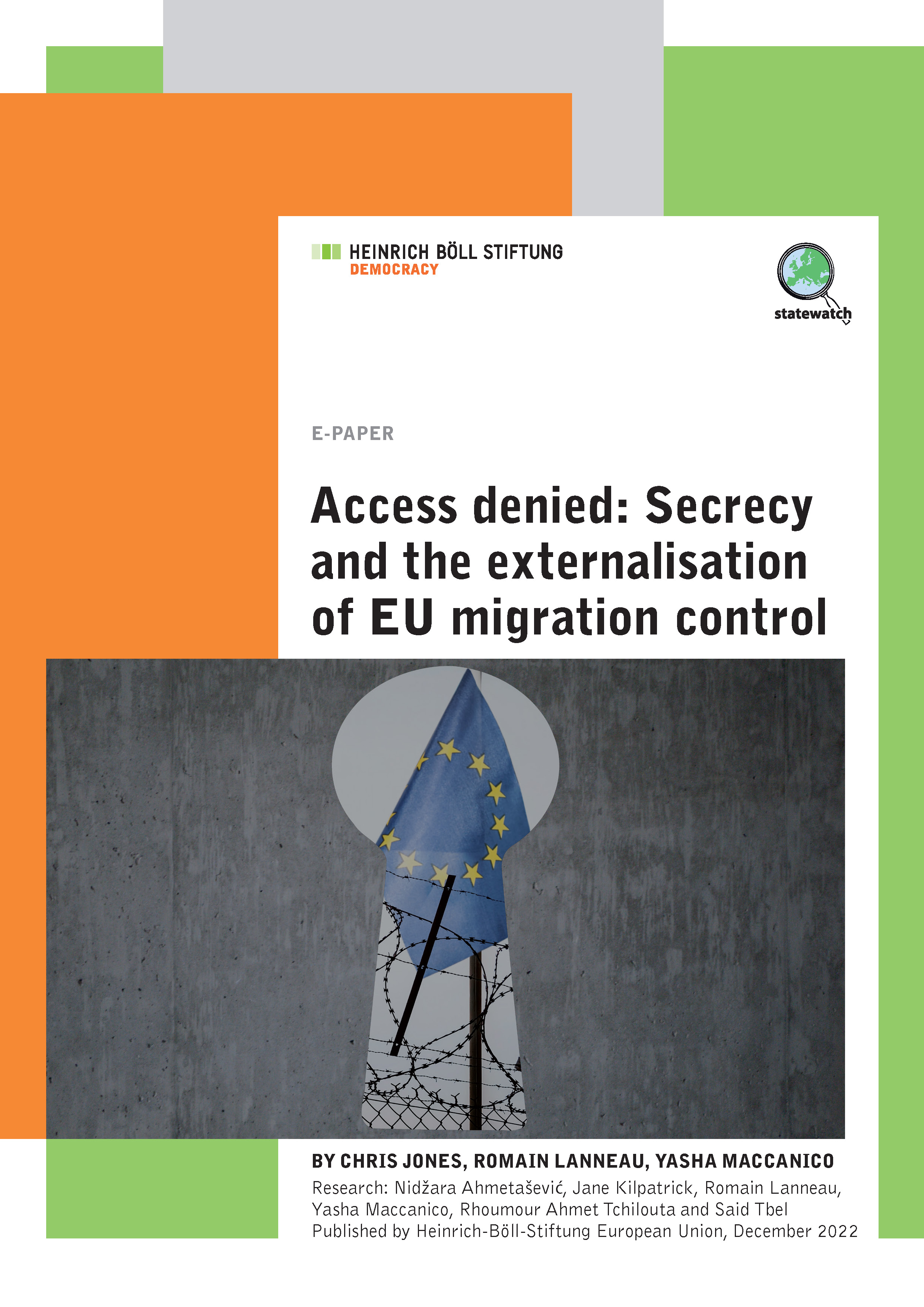
Access denied: Secrecy and the externalisation of EU migration control
For at least three decades, the EU and its Member States have engaged in a process of “externalisation” – a policy agenda by which the EU seeks to prevent migrants and refugees setting foot on EU territory by externalising (that is, outsourcing) border controls to non-EU states. The EU’s New Pact on Migration and Asylum, published in September 2020, proposed a raft of measures seeking to step up operational cooperation and collaboration in order to further this agenda.
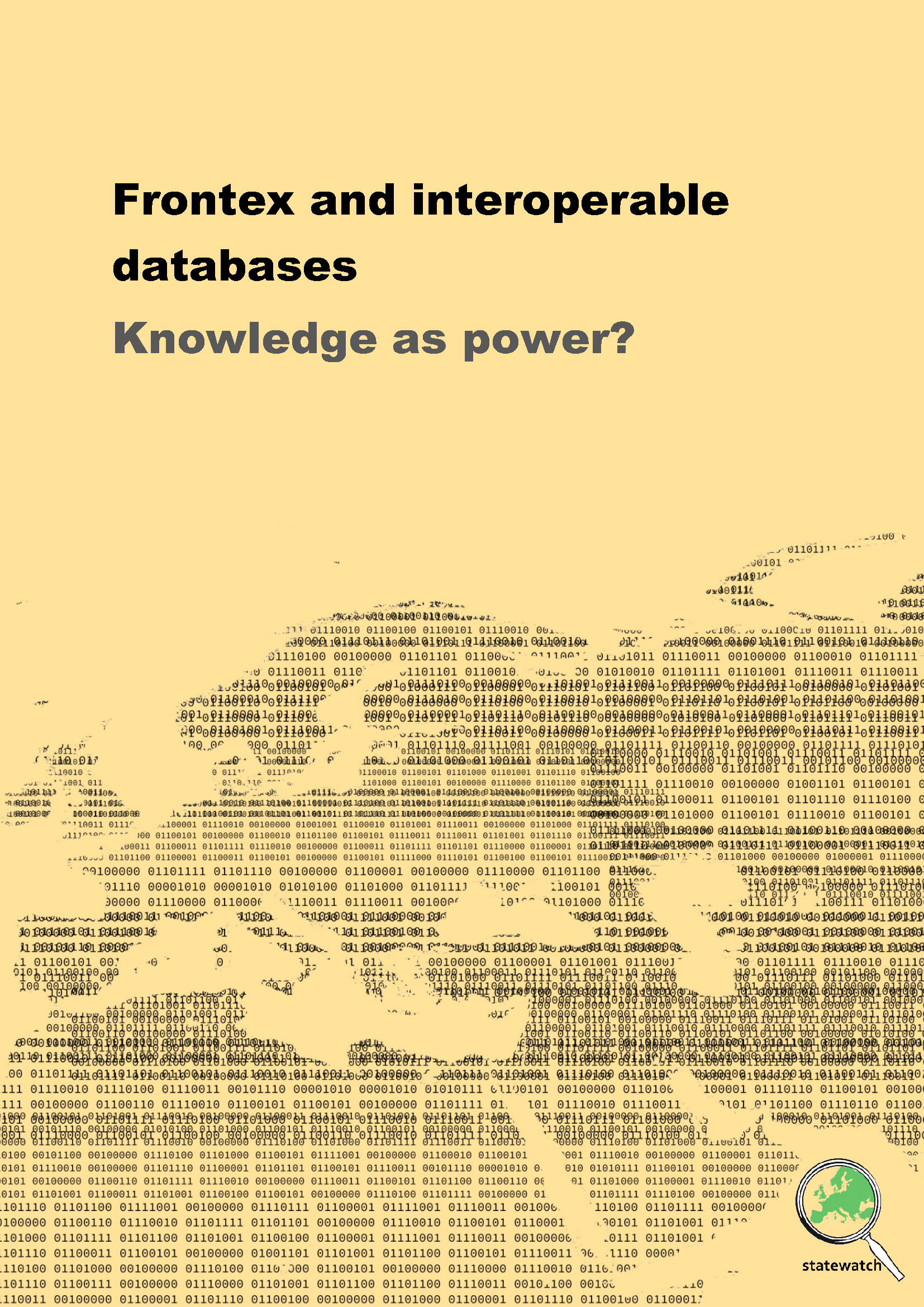
Frontex and interoperable databases: knowledge as power?
The EU’s border agency, Frontex, will be able to access vast quantities of data once the EU’s ‘interoperable’ policing and migration databases are fully operational. This briefing considers the agency’s use of data from two different perspectives – operational and statistical – and provides an overview of the agency’s role in the EU’s emerging “travel intelligence” architecture. It is aimed at informing understanding, analysis and critique of the agency and its role, with a view to making it possible to better understand, engage with and challenge future developments in this area.
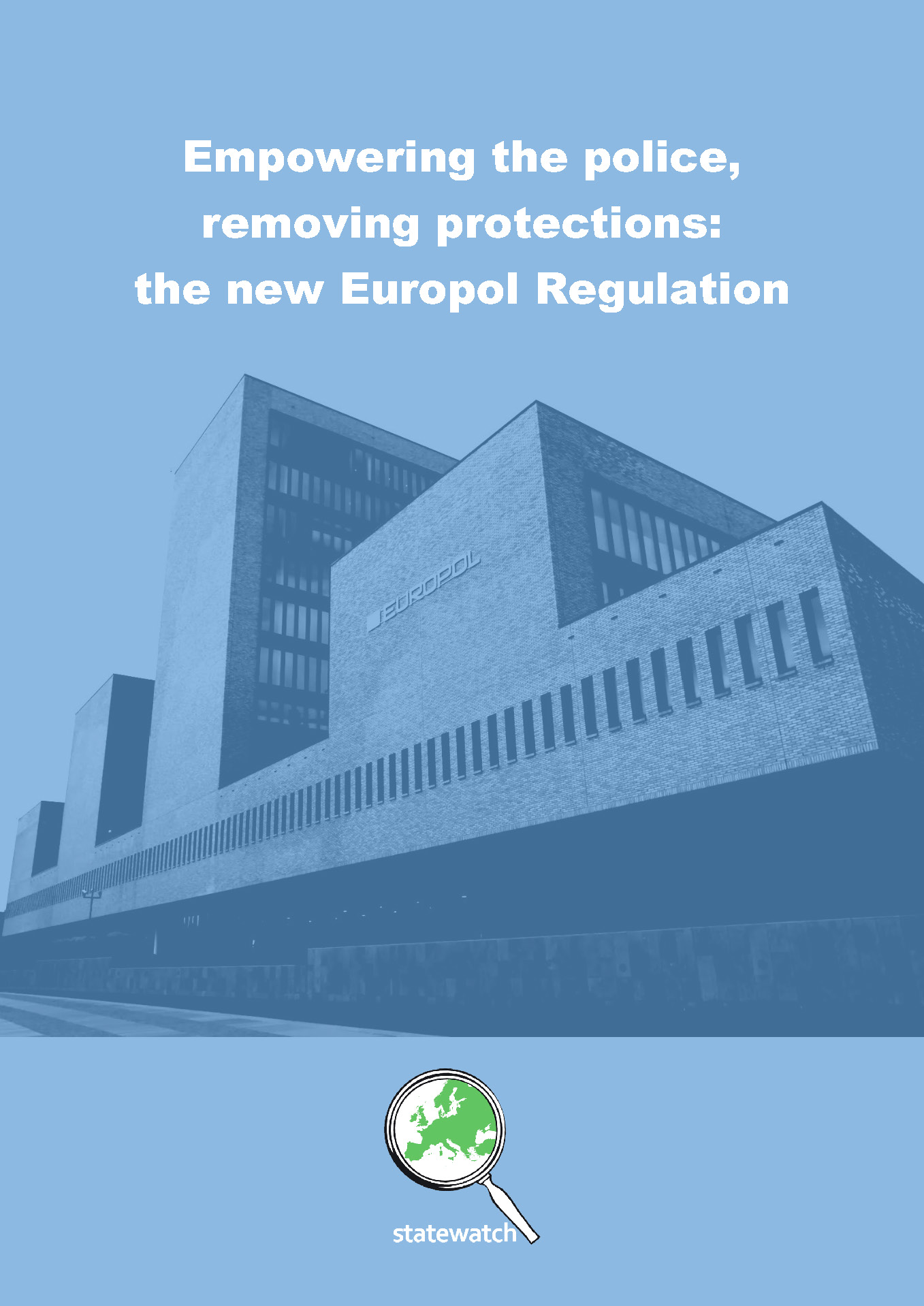
Empowering the police, removing protections: the new Europol Regulation
This report examines the new powers granted to EU policing agency Europol by legal amendments approved in June 2022. It finds that while the agency's tasks and powers have been hugely-expanded, in particular with regard to acquiring and processing data, independent data protection oversight of the agency has been substantially reduced.
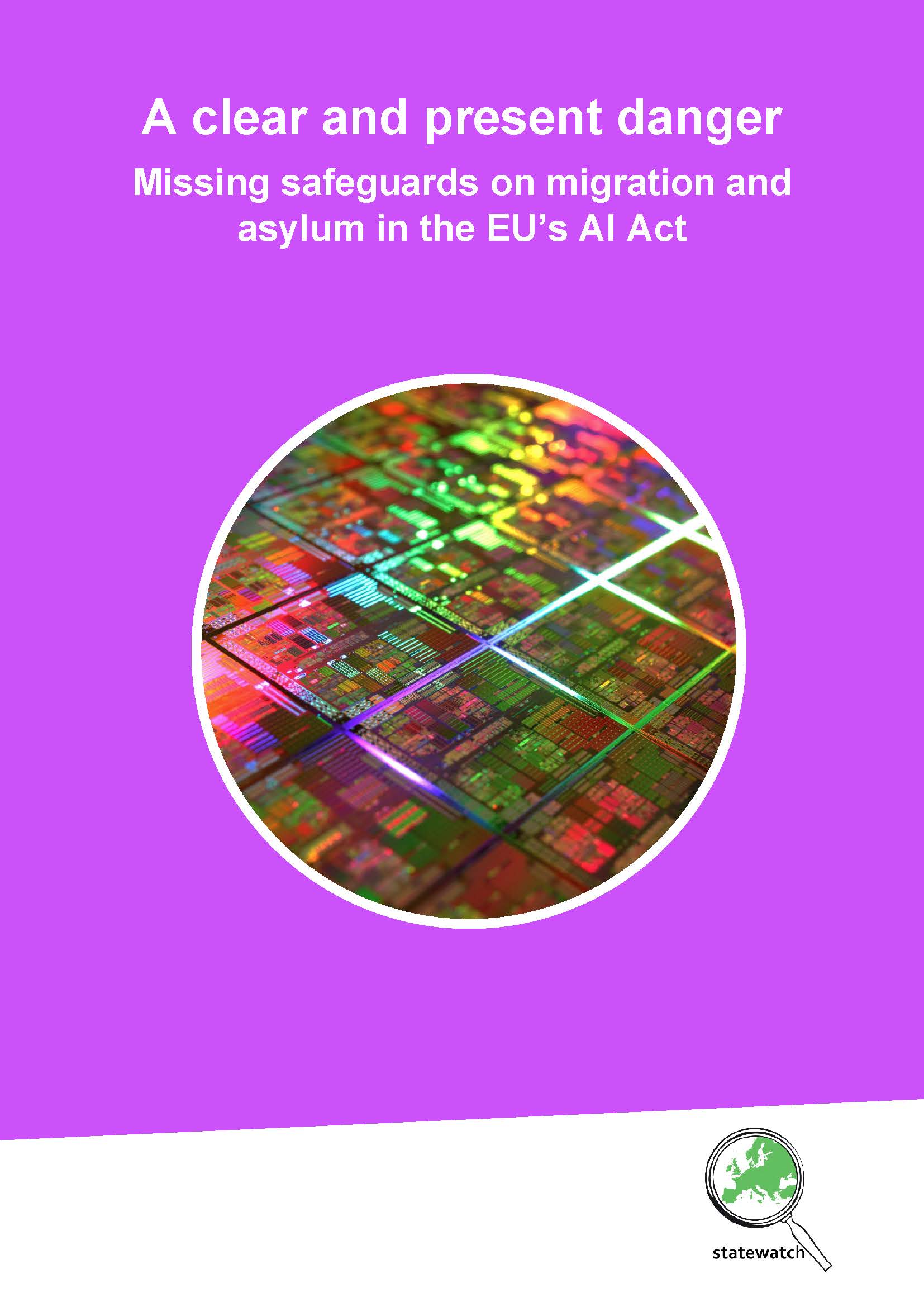
A clear and present danger: Missing safeguards on migration and asylum in the EU’s AI Act
The EU's proposed Artificial Intelligence (AI) Act aims to address the risks of certain uses of AI and to establish a legal framework for its trustworthy deployment, thus stimulating a market for the production, sale and export of various AI tools and technologies. However, certain technologies or uses of technology are insufficiently covered by or even excluded altogether from the scope of the AI Act, placing migrants and refugees - people often in an already-vulnerable position - at even greater risk of having their rights violated.
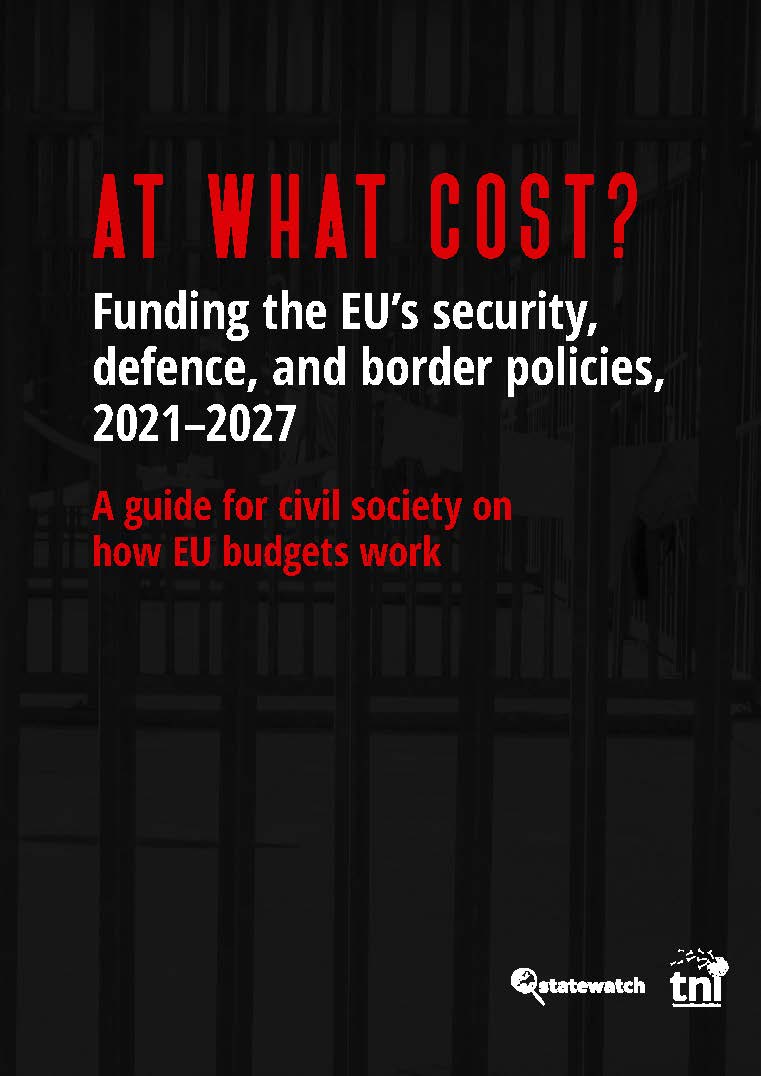
At what cost? Funding the EU’s security, defence, and border policies, 2021–2027
A critical guide for civil society on how EU budgets work. Co-published with the Transnational Institute.
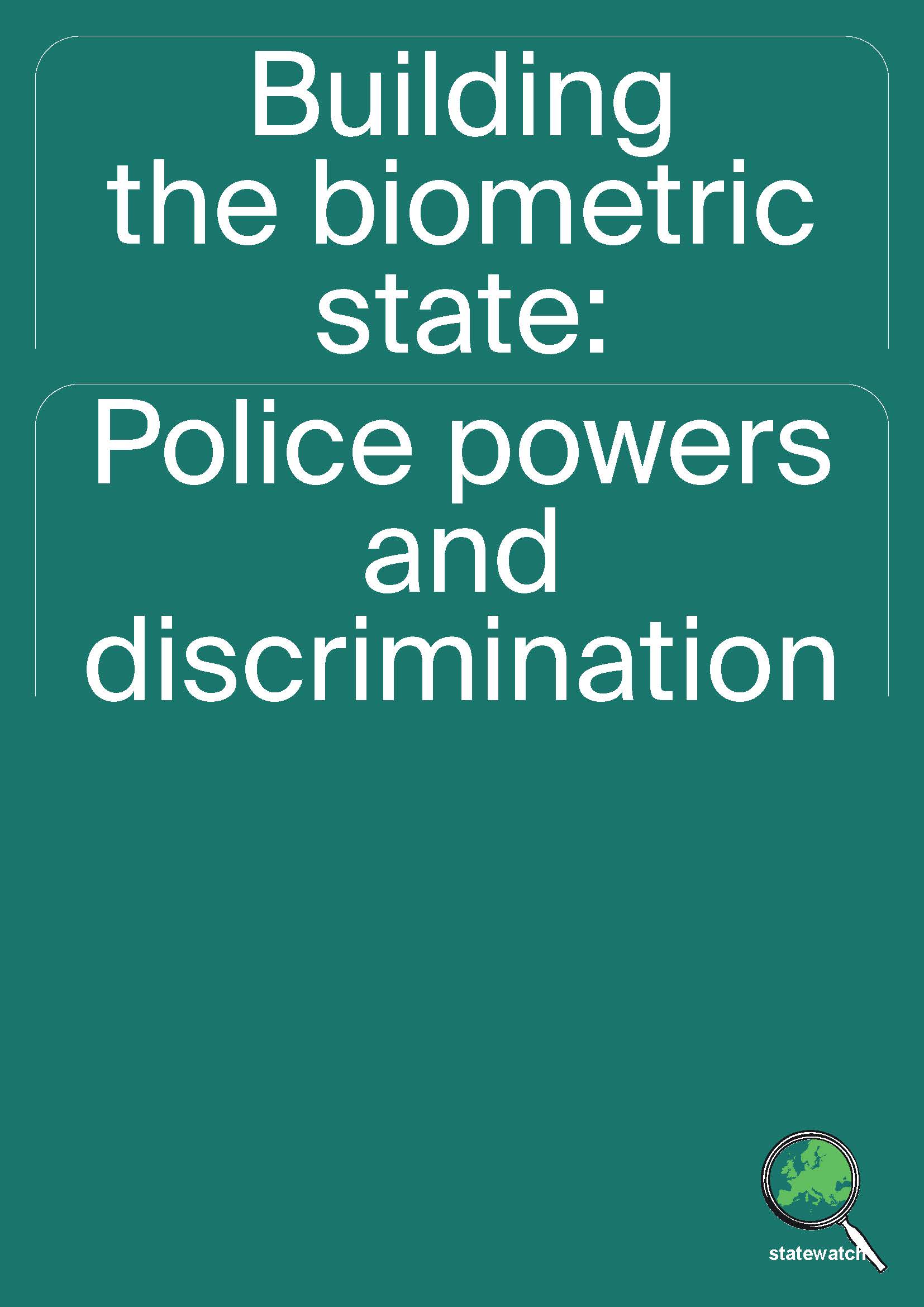
Building the biometric state: Police powers and discrimination
This report examines the development and deployment of biometric identification technologies by police and border forces in Europe, and warns that the increasing use of the technology is likely to exacerbate existing problems with racist policing and ethnic profiling.

Brexit: Goodbye and hello – the new EU-UK security architecture, civil liberties and democratic control
The UK government's domestic programme seeks to crack down on dissent and to abolish or severely limit ways for the public to hold the state to account. This report shows that those ambitions also play a role in the post-Brexit agreement with the EU. The treaty makes it possible for the UK to opt in to intrusive EU surveillance schemes with no explicit need for parliamentary scrutiny or debate, and establishes a number of new joint institutions without sufficient transparency and accountability measures.
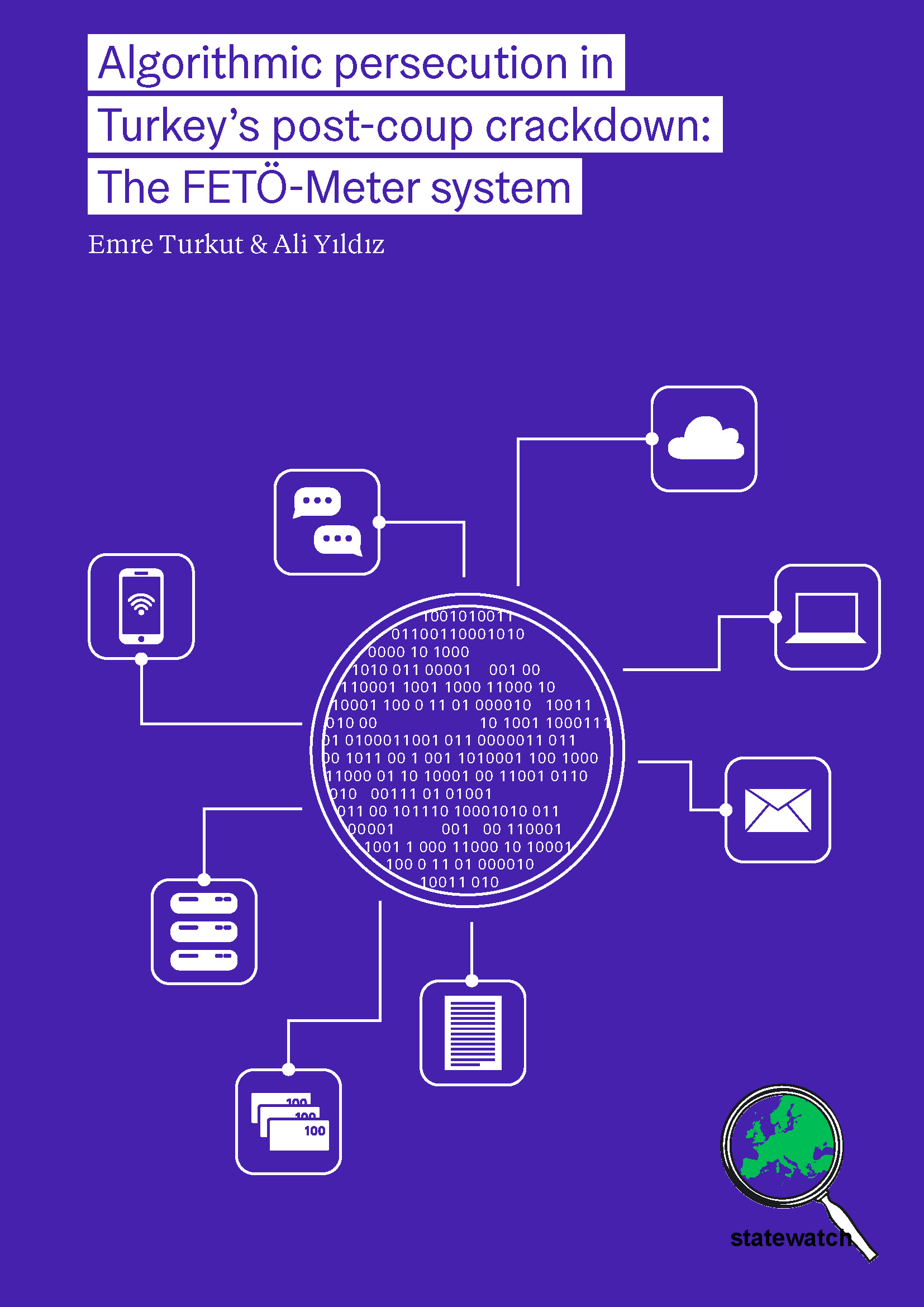
Algorithmic persecution in Turkey’s post-coup crackdown: The FETÖ-Meter system
Based on interviews with exiled members of the Turkish military, this report looks at how the Turkish authorities utilised something called the 'FETÖ-Meter' - an Excel-based algorithm based on hundreds of data points about individuals' activities, education, work history, family and personal contacts - to target officials for persecution in the wake of the attempted July 2016 coup.
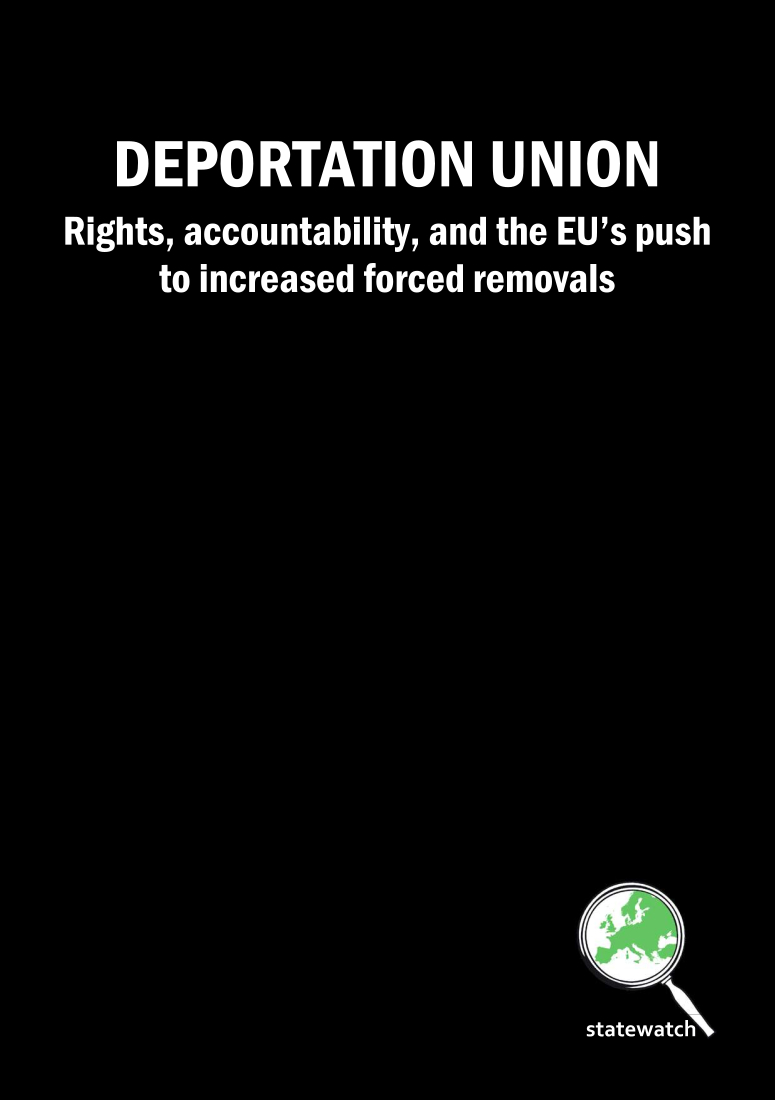
Deportation Union: Rights, accountability and the EU's push to increase forced removals
Deportation Union provides a critical examination of recently-introduced and forthcoming EU measures designed to increase the number of deportations carried out by national authorities and the European Border and Coast Guard Agency, Frontex. It focuses on three key areas: attempts to reduce or eliminate rights and protections in the law governing deportations; the expansion and interconnection of EU databases and information systems; and the increased budget, powers and personnel awarded to Frontex.
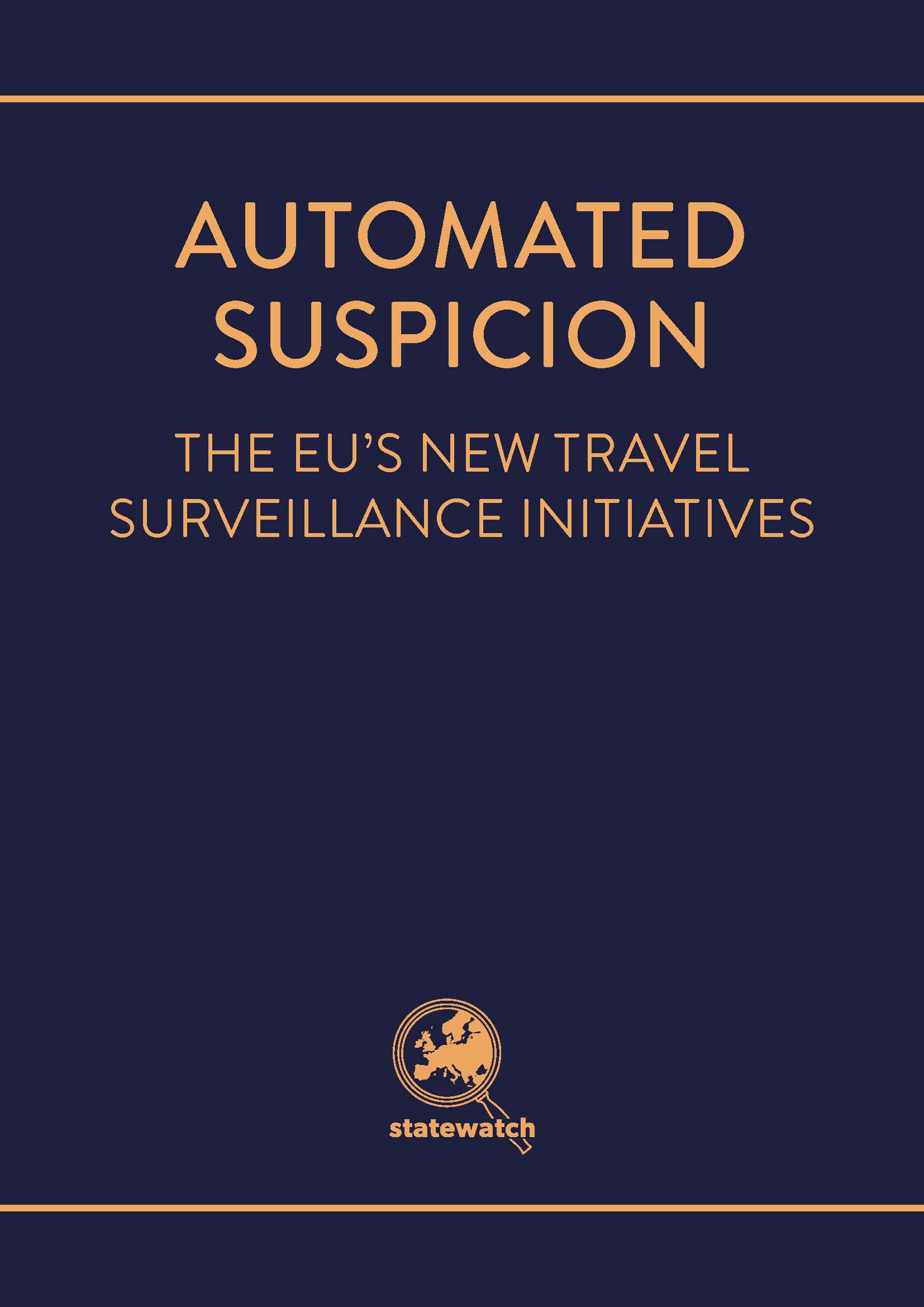
Automated suspicion: The EU's new travel surveillance initiatives
This report examines how the EU is using new technologies to screen, profile and risk-assess travellers to the Schengen area, and the risks this poses to civil liberties and fundamental rights. By developing ‘interoperable’ biometric databases, introducing untested profiling tools, and using new ‘pre-crime’ watchlists, people visiting the EU from all over the world are being placed under a veil of suspicion in the name of enhancing security.
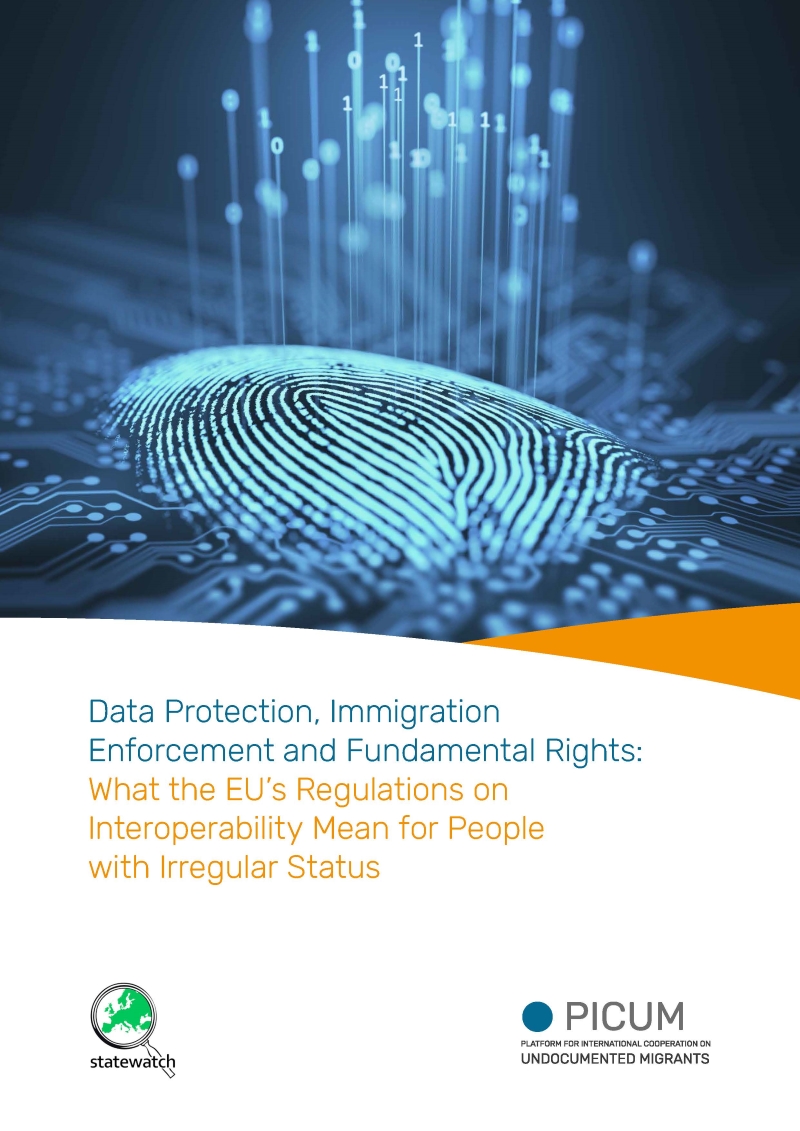
Data Protection, Immigration Enforcement and Fundamental Rights: What the EU’s Regulations on Interoperability Mean for People with Irregular Status
This paper examines the EU’s justice and home affairs databases and information systems, the changes that have been introduced by recent legislation seeking to make those systems ‘interoperable’ and the potential implications of those changes for fundamental rights, in particular in relation to undocumented migrants.
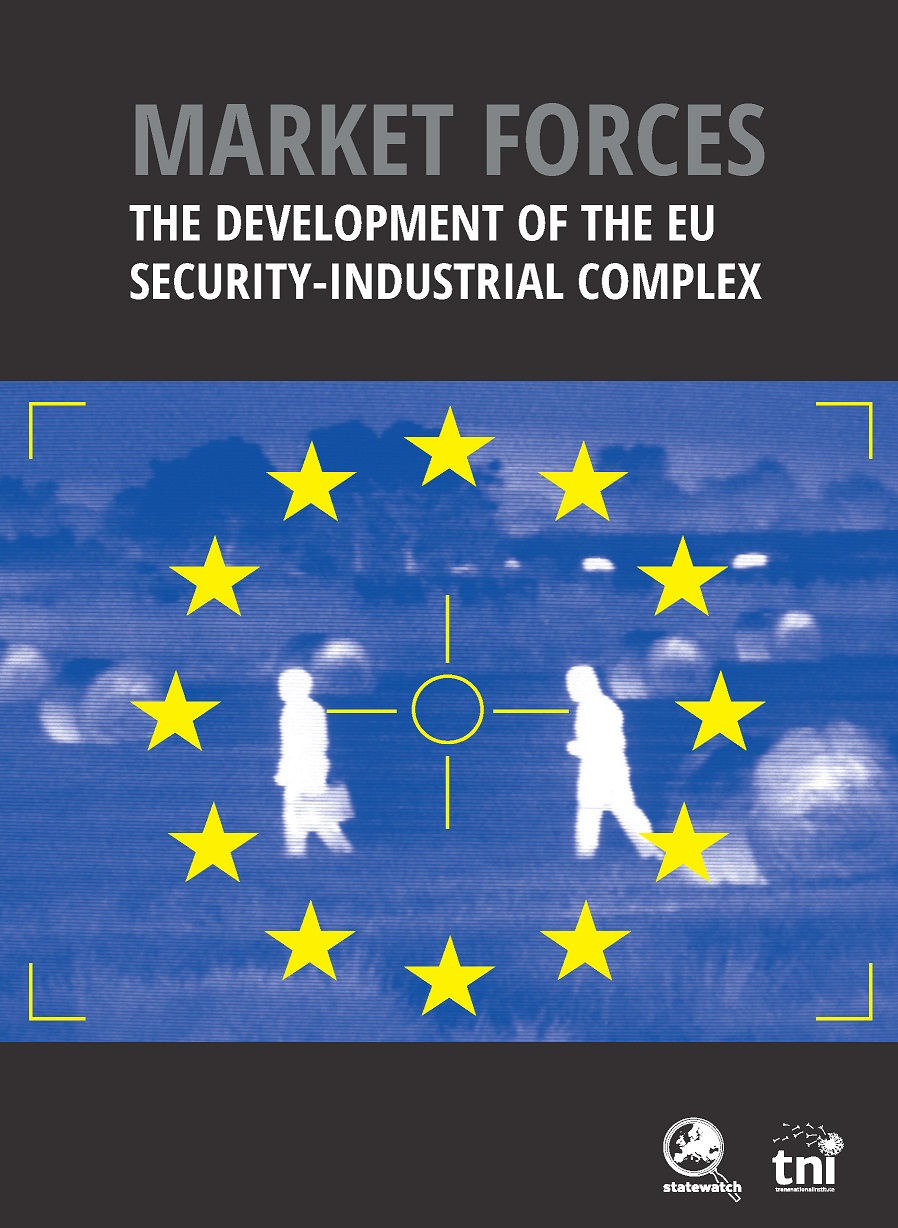
Market Forces: the development of the EU security-industrial complex
While the European Union project has faltered in recent years, afflicted by the fall-out of the economic crisis, the rise of anti-EU parties and the Brexit vote, there is one area where it has not only continued apace but made significant advances: Europe’s security policies have not only gained political support from across its Member States but growing budgets and resources too.
Spotted an error? If you've spotted a problem with this page, just click once to let us know.